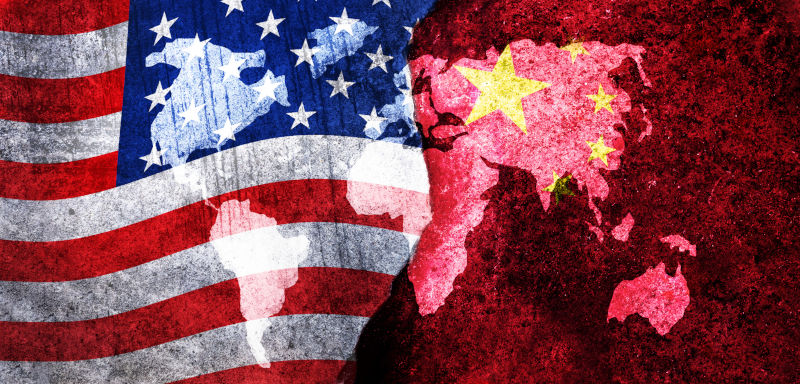Does the shift in influence in Southeast Asia betoken something more global?
June 12, 2023
A Lowy Institute survey issued in April this year showed that the balance of Chinese-American influence in Southeast Asia had shifted in Chinas favour over the last few years. Specifically, in overall diplomatic, defence, economic and cultural influence, the balance was 52 to 48 in Chinas favour in 2018 but its lead increased to 54 to 46 in 2022. Two points in the survey are worth adding. One is that the countries where the U.S. lost out most in overall terms included Malaysia and Indonesia. The other is that the areas favouring American influence are military and cultural, while those favouring Chinese are economic and diplomatic.
The direction of these specific figures may not necessarily be permanent, but the survey seems to point to a major overall trend with which readers of P&I will be familiar: with some important exceptions, the world is sharpening into the West and the rest. Although the U.S. government still trumpets that the Ukraine War has given it the chance to strengthen NATO, it can no longer depend on support from countries outside the West to the extent it once did.
Given American continuing dominance in the cultural sphere, as suggested by the Lowy Institute survey, Chinas rise in soft power, not only in Southeast Asia but globally, is very striking. The 2022 BrandFinance Global Soft Power Index ranked China fourth after the United States, Britain, and Germany, the first time it had been so high. The index defines soft power as a nations ability to influence other actors through attraction or persuasion rather than coercion, not identical to culture but certainly allied to it. The authors commented that Though Chinas performance may be a surprise to some in the Western world, it will have been expected across many developing countries.
We should also remember the ongoing process of dedollarisation, which is particularly important since the U.S. dollar underpins American global geostrategic power. The rise of BRICS (Brazil, Russia, India, China, South Africa) and recent events concerned with it have highlighted that, though the U.S. dollar remains the reserve currency, its influence is apparently in decline. While the U.S. is more and more unwilling to support bodies like the World Bank, fearing its own influence there is dwindling, the BRICS has established the New Development Bank, based in Shanghai. The long-term implications of such a move in terms of dedollarisation could be highly significant. And they suggest a changing balance of world influence, especially economic, away from the U.S. and towards China.
China has moved diplomatically into the Middle East not only to an unprecedented extent but at the expense of the U.S. Meanwhile, Xi Jinping has not been shy about suggesting global initiatives. He has put forward three in the last couple of years, the Global Development Initiative, the Global Security Initiative, and most recently, the Global Civilisation Initiative. The U.S. of course regards such initiatives as chauvinist, as it does the earlier Belt and Road Initiative. However, Xi has been very careful to frame them in inclusive terms. For instance, regarding the GDI, announced at the United Nations General Assembly in September 2021, he said was aimed to steer global development toward a new stage of balanced, coordinated and inclusive growth. It seems to me that the U.S. and the West by default interpret such initiatives as aimed at domination because they fear their own loss of dominance. I, for one, am prepared to take Xi at his word until the evidence shows otherwise. Its all very well to say dont trust China, but without evidence that has a racist tinge, especially until the U.S. and West in general show themselves more trustworthy.
Australia and the Anglosphere assume that international opinion is equivalent to Anglosphere opinion. But this is hardly true. Chinas image in Australia may be very bad just at present, but that doesnt mean that others are as similarly disposed. It looks to me that, in the big picture of history, the overall balance of influence between China and the United States is moving steadily in Chinas direction. This may be a surprise to those used to think in Manichean democracy versus autocracy patterns. We might just have to get used to it and it may not be such a bad thing. Theres a lot to be said for Chinese culture and the Chinese way of doing things. I dont see evidence that Chinese influence will undermine democracy in Australia or anywhere else. Even more importantly, I dont see the Western cultural tradition as being on the skids just because of Chinese influence. Its not a zero-sum game.
The U.S. may want to stay number 1 indefinitely, in total power, and in terms of international influence. But we have moved towards a multipolar world and thats highly likely to continue. China has said repeatedly it does not seek to replace the U.S. as number 1, but wants to be a substantial partner in the multipolar world. Its behaviour suggests to me that it means what it says. More influence in a multipolar world, yes, world domination, no!

